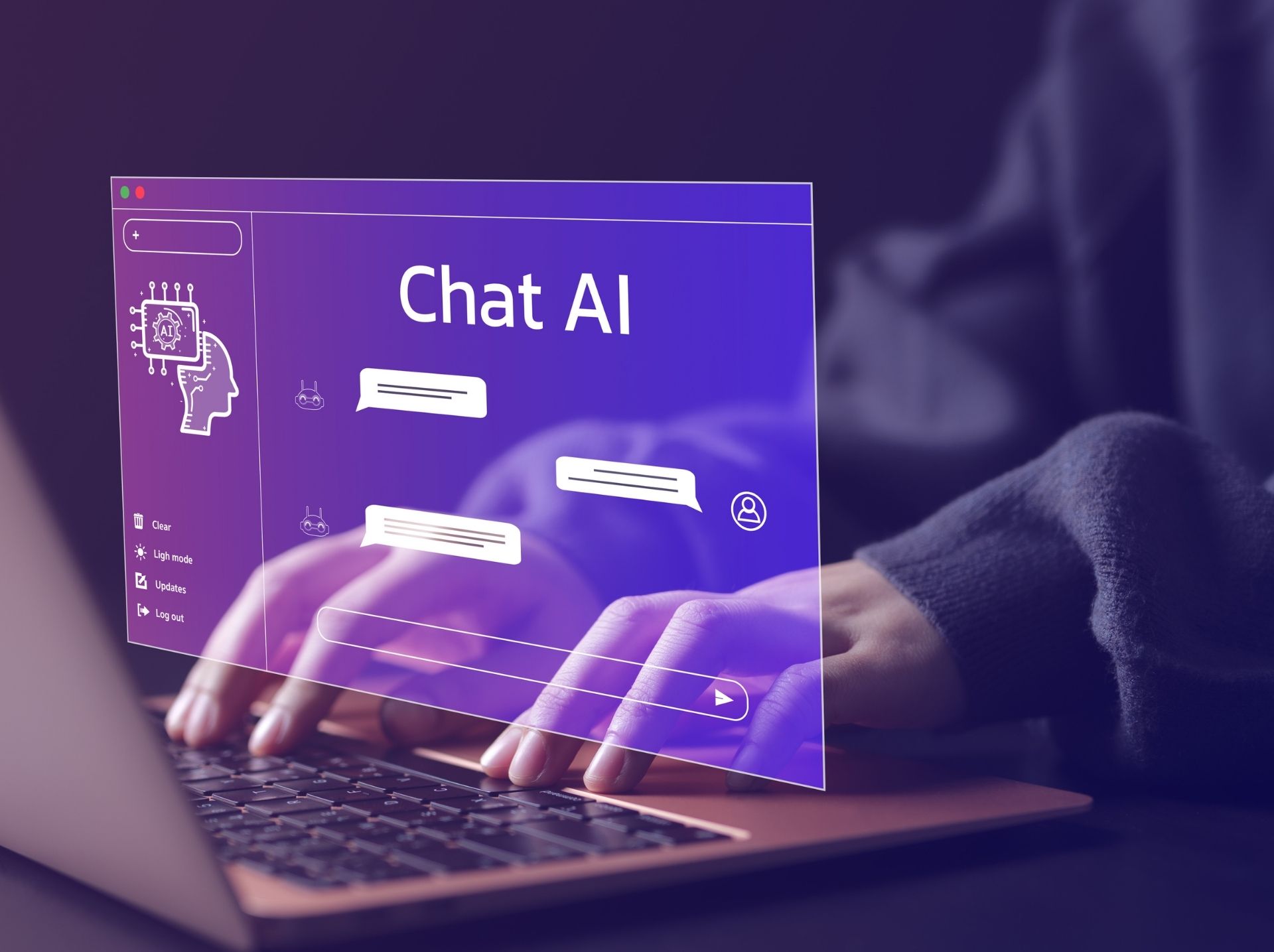AI and Business: Driving Digital Transformation Across Industries

Businesses these days face tough challenges in managing their operations. Rising competition, expanding markets, and fast-changing customer demands need companies to stay agile and innovative. This is where AI and business join forces to transform challenges into opportunities.
AI helps organisations address their most pressing issues, from automating complex operations to adapting quickly to market trends. In this blog, we will take you through how AI is reshaping different businesses across industries in 2025.
How are Businesses Using AI in Their Processes?
AI isn’t for analyzing data anymore, and businesses can use it in several different workflows. Companies now use AI to transform their entire operation, from making routine work easier to delivering experiences tailored to each customer. Here’s exactly how it benefits your business:
-
Finds potential risks early to protect business interests and prevent losses
-
Forecasts market trends and demand patterns to help you plan strategically
-
Simplifies recruitment by automatically matching top candidates to roles
-
Improves decision-making with real-time data insights across operations
-
Prevents costly errors through automated quality control and monitoring
4 Industry-Specific Applications of AI: Real-World Examples
From small companies to global enterprises, businesses everywhere are using AI to work smarter and serve customers better. Let's look at how four leading industries use Artificial intelligence:
1. Healthcare
Artificial intelligence makes healthcare better and more efficient in these ways:
-
Personalised Treatment
Artificial intelligence analyses each person's health history, genetics, and lifestyle to create custom patient care plans. Using predictive technology, it finds treatments best suited to patients while reducing side effects.
-
Early Diagnosis
AI systems can spot signs of disease early by quickly examining patient symptoms and medical records. This helps doctors catch and treat conditions when they're most manageable or even prevent them entirely.
-
Records Management
AI makes managing patient records more efficient by sorting and analysing medical data automatically. With that, it helps doctors quickly find the information they need, helping them make faster, informed decisions.
-
Drug Discovery
By accurately analysing how different medications interact with each other and the human body, AI helps researchers find new uses for existing drugs. It can also predict which drug combinations might be dangerous for patients.
Take the example of Moorfields Eye Hospital in London[1], which uses Google DeepMind’s AI system to analyse eye scans. This has helped them detect over 50 eye conditions accurately, helping identify serious vision conditions before it becomes too late.
2. Retail
Artificial intelligence helps retailers in the following ways:
-
Personalised Shopping Experience
By analysing how customers shop, what they like, and what they buy, AI helps to suggest products that match each customer's specific preferences.
-
Product Pricing
Be it market trends, competitor prices or consumer demand, AI algorithms track all important data in real-time, helping stores fine-tune their pricing to be competitive and thus earn higher profits while making their customers feel happy.
-
Customer Service
AI chatbots quickly respond to inquiries and fix common problems. These virtual assistants work around the clock to help customers find what they need and solve their issues, enhancing customer service.
-
Product Organization
Using image recognition algorithms, AI can analyse product photos and automatically extract details like colour, style, and brand. This makes it easier to organise store catalogues and helps shoppers find products faster.
Look at Amazon’s in-house AI recommendation system. It helps to show customer products based on their browsing and purchase history, driving around 35% of the platform’s sales[2].
3. Banking and Finance
AI makes financial operations smarter and safer by offering:
-
Fraud Detection
AI analyses spending patterns, behaviours, and locations to help banks and financial organisations quickly catch suspicious activities in real time and prevent losses.
-
Credit Assessment
AI uses alternative sources of data and ML algorithms to check whether someone will repay a loan or not, thereby leading to better lending decisions and reduced risks for banks of unpaid loans.
-
Portfolio Management
AI algorithms can search the market data to predict trends used by financial advisors to make better investment choices. This ultimately leads to more successful investment portfolios and happier clients.
-
Prevents Money Laundering
These algorithms make it easy to scan millions of transactions to detect suspicious money laundering patterns. This makes it simple for banks to comply with regulatory requirements while detecting spam activities.
For instance, JPMorgan Chase has been using an AI-powered fraud detection system to screen millions of transactions daily. It analyses patterns across its global network to detect and prevent real-time fraudulent activities, protecting both the bank and customers.
4. Education
By integrating AI with learning, you can personalise educational experiences, simplify administrative tasks, and offer better support to students. Here are some of the specific benefits of AI in the education sector:
-
Smart Grading
AI helps educators offer their students prompt feedback and assessments by automating grading systems. Teachers can save valuable time, allowing them to focus more on sharing knowledge and less on paperwork.
-
Better Curriculum
Artificial intelligence can help with curriculum planning by analysing educational data to find trends and gaps in course materials. It can also suggest adjustments to the course based on real-time insights and changing educational standards.
-
Administrative Support
AI automates everything from managing student records to day-to-day administrative work. This saves staff hours of manual work, cuts costly errors, and lets schools focus more resources on actual teaching and student support.
-
Smart Tutoring
AI-powered tutoring systems give students targeted help based on how they learn best. These systems can quickly adapt their teaching methods and help when needed.
For instance, Carnegie Learning’s MATHia uses AI to offer personalised instruction to students. With its help, their system can easily adapt their teaching methods in real time to match student progress and learning style.
How AI Enhances Business Decision-Making?
The combination of AI and business is being used to make smart decisions. Since AI tools can process vast amounts of data at once, it's helpful in identifying patterns and using those to predict future trends with high accuracy. Businesses can then use these results to make informed decisions.
AI systems can track business performance, industry trends, and customer demands in real-time. This helps companies quickly adapt to new challenges and grab opportunities before competitors.
Through AI’s predictive analytics and advanced modelling, businesses can better assess risks and adapt to rapid market changes.
AI-Powered Customer Experiences: Personalisation and Beyond
Here are the different ways to use AI in your business and serve your customers better.
1. Hyper-Personalisation
AI analyses the shopping behaviour, preferences, and buying patterns of each individual to help retailers create custom experiences that convert. They increase sales and customer loyalty by delivering the right products and recommendations at the right time.
2. Chatbots and Virtual Assistants
Using natural language processing (NLP), AI understands both spoken and written queries. This way, these digital assistants handle everything from basic questions to specific product queries. These tools learn from each interaction to offer more accurate responses.
3. Predicting Customer Needs
By analysing how customers shop, browse, and ask questions, AI helps businesses understand preferences. This lets companies better plan their inventory, adjust their services, and offer deals at the right time.
Balancing Innovation and Ethical AI Implementation
While AI offers many benefits, its success depends on responsible use. Here's how to use AI effectively while maintaining ethical standards:
-
Diverse and Inclusive Data
Companies developing AI must remove bias from their systems. For that, they should gather data from many different groups. Plus, they must also check regularly to identify gaps in data. This approach ensures AI systems produce fair outcomes for all users.
-
Clear Frameworks
Set clear rules for how your business uses AI, following industry best practices. You should outline specific practices for each department and provide steps on how to stay compliant.
-
Regular Audits
Organisations must regularly review their AI systems to identify potential ethical issues and to be able to address any issues before they affect your business. You must examine for bias, unfairness, and negative social impacts across all AI applications.
How is GrowthJockey’s Expertise Accelerating AI-Driven Transformation?
GrowthJockey utilises AI and builds tools that will help your business stay ahead of the curve. Our expertise spans predictive analytics for market forecasting, machine learning for process automation, and other AI applications that deliver measurable results.
We work directly with you to develop a strategy customised to your needs. Our experts assess your business objectives and identify where AI would be of value. We then work on solutions to suit your requirements.
Ready to start your AI journey? Contact GrowthJockey to build an AI strategy that keeps you ahead of the competition.
FAQs on AI and Business
1. How is AI applied in business?
Your business can use AI to automate routine tasks and analyse large amounts of data in no time. It can predict customer behaviour and personalise services. Artificial intelligence in companies improves efficiency and decision-making across all operations.
2. How will AI affect business?
AI development companies are designing tools that will revolutionise the way you work, decide, and serve customers. They will ensure operations run faster, predictions will be more accurate, and customer experiences will improve. The technology will decrease costs while opening up opportunities for growth and innovation.
3. What is the role of AI in business development?
AI enables you to identify market trends and select the most promising segments of customers. It helps you in optimising your growth strategies. AI for companies have developed tools that analyse market data and predict business outcomes. These tools guide you in making good decisions about expanding your product.
4. What does the future hold for AI in business?
The partnership between AI and business will grow deeper. As technology grows, AI tools will become more accessible and affordable for companies of all sizes. This accessibility will increase innovation in customer service, product development, and business operations. You can expect to see more industry-specific solutions that address unique business challenges.








